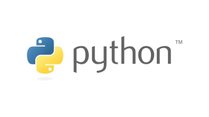Bayesian for Research & Data Science
A comprehensive 15-hour structured training for researchers, graduate students, practitioners, and scientists at all proficiency levels to teach the foundations of Bayes' theorem using Python as a model for learning and making decisions based on empirical data. Bayesian approaches have many empirical implications and are widely used widely for machine learning. Receive a certificate upon completing this live training.
Start your Learning Journey Today!
Bayesian Training Program
A fully-fledged intensive training on the fundamentals of the Bayesian approach for econometric modeling and data analysis using Python programming package.
Duration: Approx. 15 Hours
Training Mode: Normal group (7-10 trainees), small group (2-5 trainees), and one-to-one
Platform: online (Zoom)
Extra benefits:
- Certified certificate after completing the training
- 10% trainee discount on future bookings
- Trainees become eligible to submit their papers at the MSR working paper series (SSRN and RePEc indexed).
Training content is systematic and structured as follows:
1 - Introduction and Setup
2- Probability Theory
3- Model Inference
4- Probalistical programming
5- Bayesian A/B-testing
6- Hierarchical Models
7- Simple Linear Regression
8- Hierarchical Linear Regression
9- Logistic Regression
10- Bayesian Neural Network
#
About Bayesian Statistis
Bayesian statistics is a branch of statistics based on Bayes' Theorem, which describes the probability of an event based on prior knowledge of conditions related to the event. In contrast to frequentist statistics, which rely solely on the data at hand, Bayesian statistics incorporate prior beliefs or information in the analysis. This approach allows for a more flexible and dynamic updating of probabilities as new data becomes available.
Bayesian methods are widely applied across various fields. In medical diagnosis, they help update the probability of a disease as new test results are obtained. In machine learning, Bayesian techniques are used in algorithms like Naive Bayes classifiers and Bayesian networks, enabling more accurate predictions by incorporating prior information. Bayesian methods also play a significant role in quality control, updating reliability estimates as new data is collected, and in environmental science, predicting changes and assessing risks based on new evidence.
The benefits of Bayesian statistics include its flexibility in incorporating prior information, clear probabilistic interpretation, robustness with small sample sizes, and effective quantification of uncertainty in estimates.
Learning by Researching TM
Reviews
"Experienced Trainers"
Gabriel Arrieta
Catholic University of Peru, Peru
Excellent training
"Mind-Blowing Learning opportunity"
George Chanda
Petroluem Limited, Zambia
After finishing the first module, I decided to to do all modules because the first one has opened my mind, because here in Zambia there is no university or college where they offer as full program they way you offer it, it only comes as a course to those who are doing economics.
Training Calendar
2025
May /Normal Group
July / Small focus Group
October / Normal Group
Start your Learning Journey Today!
Free Consultancy
+49 0 17686387586
info@ms-researchhub.com
+49 0 15225886301
Training Mode and Registration
Offline, self-paced Learning
- Access the offline course for 3 months
- Download all relevant codes, material, and slides.
- Recieve a certificate of completing an offline course after 3 months.
145 EUR
Online and Live
Group Training
- Experience live interactions with expert instructors.
- Gain free access to all course materials, slides, and codes.
- Learn and apply concepts through real-world data examples.
- Receive a certificate of completion upon attending all live course sessions.
- Choose your preferred intake: April or October. The training typically occurs on weekends to accommodate busy schedules.
Standard / Student
450 EUR / 310 EUR
Online and Live
Private Training
- Experience personalized, one-to-one interactions with an expert instructor.
- Gain complimentary access to all course materials, slides, and codes.
- Tailor your learning objectives to align with your research and project requirements.
- Learn and apply concepts using your preferred real-world data examples.
- Receive a certificate of completion after finishing the course
- Enjoy flexibility in organizing the start and pace of the course.
820 EUR








